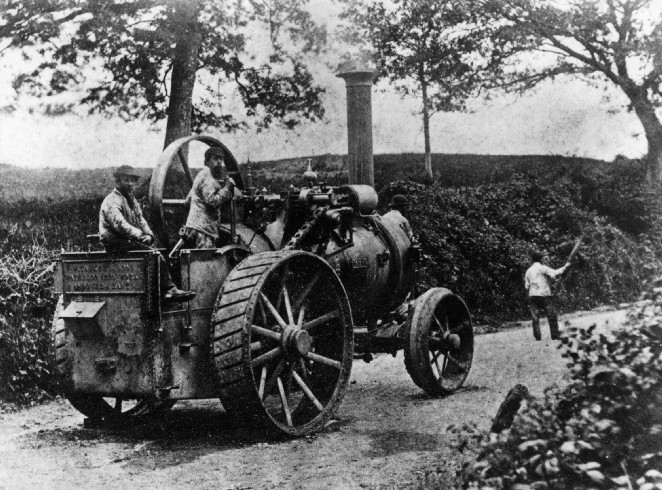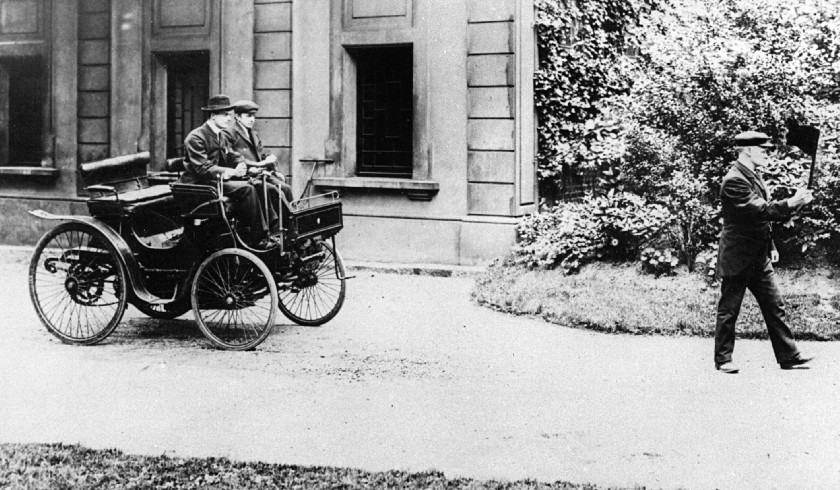Life in Sweden went on largely as normal while other countries enforced strict quarantine measures. They have been successful in drawing a balance between the perils of social restrictions and the threat of Covid-19 that was both rational and measured to prevent their reaction being a classic case of the cure being worse than the disease.
A similar precedent occurred in 1860s-90s England with the first motorised vehicles, “horseless carriages”, hitting Britain’s roads. Out of irrational fear over the dangers they posed, we set the speed limits to 2 MPH. It took some 30 years before campaigners forced society to wake up and realise any benefits conferred by cars were rendered useless by the protective measures in place.
Just as we were living in collective denial back then, quarantines and exacerbated fear over the threat Covid-19 poses us, have left us in a similar position today.

Red Flag Laws
The “Locomotive Acts” 1865 were aimed to keep roads safe for horses, horse-drawn carriages and pedestrians. The speed limit was set at 2 mph within towns, 4 mph outside and a person had to walk in front of the vehicle waving a red flag at all times, earnings the restrictions the nickname “red flag laws.”
Some laws made sense in 1865, it wasn’t until 1896 that they were relaxed. Drivers had to post their name and address on the vehicle, stop if anyone with a horse was coming the opposite way and still travel at walking speed.
It was an old law applied to new technology removing the benefits it offered. In England, it stifled progress, killing off the automobile market for a time. Who would risk investing where there was no obvious benefit besides prestige? Until John Henry Knight fought the Red Flag Act, often through civil disobedience. In 1895, he built a vehicle to attract police attention and raise public awareness. The judge who eventually overturned the Acts saw reason that any benefits from having mechanised vehicles to travel quicker were lost in the irrationality of forcing them to go slowly.

The restrictions showed a profound lack of understanding and irrational fear over technological change and our patent unwillingness to adapt to the future.
Let the Government decide
Today, we are faced today with a society cowering in its boots looking to our government to save us and prescribe solutions to all our problems. We accept paternalism for an 8-year-old trying to buy fireworks or alcohol and accept the moral case for policymakers to use their coercive power to steer our choices towards what they believe best protect the interests of the general public. Whether this is smoking, overeating or recreational drug use on the basis for the presumption that the individual is not always the right person to decide what is in their own best interests.
With the current Coronavirus restrictions, it is also crucial that any intervention is properly evidence-based. Nudges or mandates to curb infections need to be run by experts and not the politicians as recent history is littered with examples of harmful unintended consequences where policymakers follow the whims of the crowd mentality rather than making the hard, but responsible decisions on our behalf. Sweden listened to her experts and has come away relatively unscathed. Britain’s middle ground response is counterproductive as shown by encouraging a return to public spaces with Eat/Drink Out To Help Out August and then in September criticising young people for the rise in cases.
Nationwide lockdowns have caused unprecedented shrinkage to the UK economy, costing jobs, livelihoods, lower wellbeing, lost time and opportunities and a hidden mental health crisis. The restrictions were justified initially, but as the responses of countries like Sweden have shown, the cost of lockdowns just as red flags and walking speed limits for our first cars outweigh the benefits these “safety measures” provided.
Sweden’s response was based on expert recommendations, led by Anders Tegnell. While they failed in protecting elderly homes, they have continued life as normal and have one of the lower casualty rates. Meanwhile, they have been vilified in the international press for their recklessness, despite a government policy that empowered experts over politicians.
Fear
We are living in fear. Lack of knowledge and media hype made us worried about our own and our families’ safeties. We are still cowering in the shadows and probably will be for 1-2 years of our lives. Many of us are slowly heading toward financial ruin. All for a virus with a 0.1% fatality rate in under-70s. And, this was during the height of the pandemic when we did not know about all the other treatment options to preserve life. This is likely to be significantly lower now that we know how to treat it, and our elderly and high-risk populations are socially distancing until a viable vaccine. So, we are left with the rest of society in self-destruct risking many more lives from everything else we conveniently forgot about in the meantime and the tens of thousands who will die from the economy shrinking on top.
At this juncture, despite lockdown, rapid medical mobilisation, social distancing and hygiene measures; infections do not seem to be under control. Restrictions have their own associated challenges, whether preventing medical operations, check-ups, isolation harming mental health, job losses, stress, suicides and so on. It is a Catch-22 wherein we need to also appreciate how our responses will impact our lives in a world that has to move beyond Covid-19. There is an old saying every adversity is an opportunity too. This is no exception.
Human life > Economy
The issue at stake in England is not personal liberties or the economy, but collective perseverance to preserve human life and functioning healthcare systems. Britain has a strong tradition of civic responsibility and willingly committed to the joint effort. There is not really a priority beyond human life since there is not an “economy” that exists without it. Pragmatic concerns about not re-opening society sooner will undoubtedly continue to press against the need for safeguarding life.
As the Lockdown Poem competition gave us Julie Sheldon’s “Some of Us”, what we can do is persevere…
“All of us can choose to spend
Our days in fear and dread…..BUT
All of us can choose to plan
For better days ahead”


